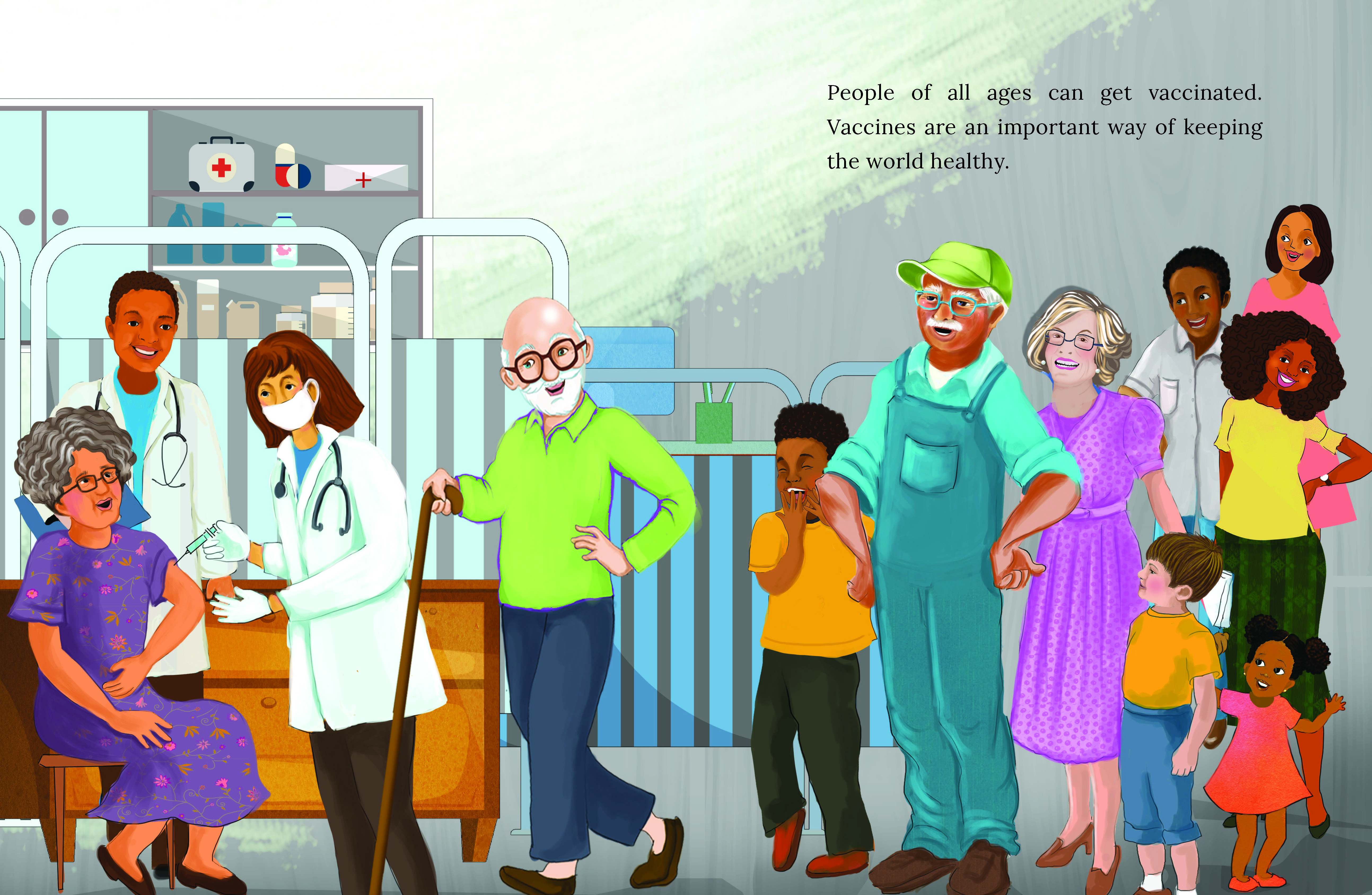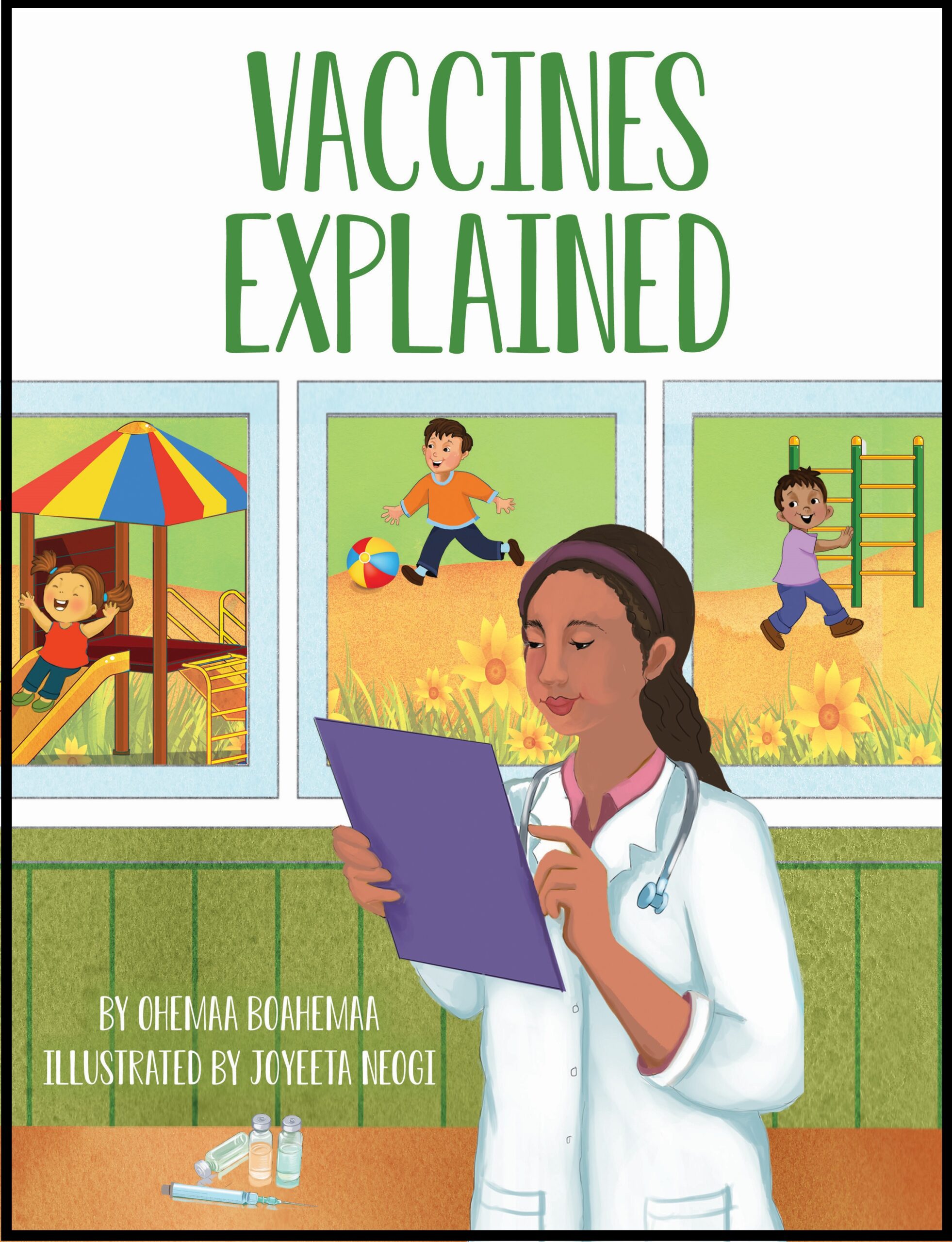Our new multicultural book, Vaccines Explained, looks to bring science to story time. Now more than ever, our children need to understand the importance of vaccines and their proven ability to fight the spread of infectious diseases.
Concern for the COVID-19 Vaccines
Throughout recent history, scientists have used vaccines to safeguard the human population from infectious diseases. In fact, due to the success of the smallpox vaccine, the last known outbreak of smallpox in the United States took place in 1949. Currently, the World Health Assembly considers smallpox to be eradicated.
At the start of 2020, the U.S. saw their first cases of the COVID-19 virus. Like many countries, they were ill-prepared to handle a global pandemic. While this past year has been painfully difficult, there is comfort in the knowledge that COVID-19 vaccines are available so quickly. These vaccines are now considered the fastest to ever be developed and approved.
“[Vaccines Explained] is a great learning resource to help increase medical knowledge and decrease fear in all communities during a public health crisis.”
– J. Basini MPH, Health Education Teacher
This scientific feat is not without concern however. In September 2020, prior to the vaccine roll-out, nearly half of adults in the U.S. said they “definitely or probably would not get vaccinated” at that time. So why are so many Americans hesitant to accept the new COVID-19 vaccines?
There are many reasons people are cautious about getting vaccinated. For some, they are concerned about the speed with which the vaccine was developed and approved. For others, they are worried about the potential long-term side effects. This hesitancy is even more pronounced among minorities, who have dealt with a history of racism in health policies and experiments.
These are all legitimate concerns. Importantly, we as educators and caregivers have a responsibility to equip young learners with the tools to understand factual, scientific information. We are the first resource our children and students can turn to in order to understand the importance of vaccines. Above all, we need to ensure that our most vulnerable students feel seen in the books and projects we share.
 From Vaccines Explained (Spanish-English)
From Vaccines Explained (Spanish-English)
How to Talk to Children About Vaccines
The United States has dealt with the COVID-19 pandemic for over a year now. You have most likely found a few ways to talk to your children and students about the virus. However, if you are still unsure, National Geographic has a great list of ideas. Importantly, we must be calm, honest, and realistic. It is necessary to discuss what steps you can take to mitigate your exposure and what to do when you think you’ve become sick.
When teaching young learners about the importance of vaccines in the fight against COVID-19, it is important to remind them how our body works when it gets sick. You may even consider pairing these lessons with a book about the human body.
It is also essential that families from non-English speaking homes have access to accurate information in their language. For that reason, Language Lizard published Vaccines Explained, which describes how vaccines work, their history, and why they are important.
Currently, Vaccines Explained is available in English and as a bilingual book in Spanish, but more languages are coming very soon. To help you further, the book comes with a multicultural lesson plan, resources for additional child-friendly information on vaccines, and audio of the book.
How have you successfully talked about the COVID-19 pandemic in your classroom or home? Tell us below or talk to us on social media with #VaccineAwareness #ScienceForKids

